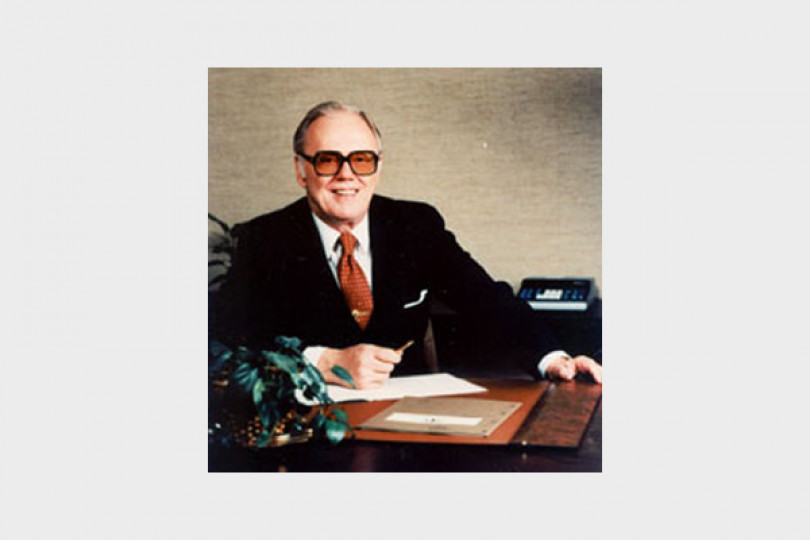Companies lower benefits and use surpluses to make profits
The next time you hear a report on how much profit some large corporation has made in the past year, or how some corporate executive has made a couple of million dollars by cashing in stock options, I want you to think of Jim Sanders.
Jim and his wife, Dorothy, used to work at the Inspiration mine in Miami, Ariz., where they were members of Local 187. When Cyprus Mines bought Inspiration, they refused to recognize the union and managed to convince a majority of the workers there to go along with their plan.
That was enough for Jim. He and Dorothy retired. Unfortunately, they no longer had the protection of a union contract, so they had no choice but to accept the terms Cyprus dictated for their retirement.
Those terms included a provision for Cyprus to pay $210 toward the cost of medical insurance. That figure never gets larger. Any increase in the cost of insurance must be paid by the retiree.
Every year since his retirement, Jim's portion has gone up. It is now $350 a month. His pension for the 22 years he worked at Cyprus only amounts to $362.25 a month, leaving him a whopping $12.25 to spend as he pleases. As he explained it in a letter to the local newspaper, at this rate he will soon owe more than he makes.
Jim and Dorothy are not alone. Thousands of retirees learn every year that the benefits their employers "guaranteed" they would get when they retired have vanished. Medical benefits are cut back or eliminated altogether. Pension surpluses are looted.
And it's all legal.
Employers are finding devious ways to get around federal regulations and make money off of pension funds and retiree medical insurance funds. Dozens of corporations — many of which report huge profits — are taking money out of the pockets of their retirees and adding it directly to their bottom line.
A series of articles by Ellen E. Schultz in the Wall Street Journal describes some of these practices and shows how multinational corporations like GE, Proctor & Gamble, Sears, Chiquita, and others are manipulating the law and their ledger books to make their companies look more profitable.
For example, Chiquita got court permission to eliminate medical benefits for 3,300 Morrell Co. employees in order to improve its profitability, then sold Morrell to Smithfield Foods Inc. for $58 million.
Lorraine Jastrom, a Morrell retiree, 74, now pays $600 a month for medications for asthma, blood pressure, arthritis, and bowel disorder. Her widow's pension is $159 a month. She lives in government-subsidized housing.
Some companies change benefits instead of killing them. One method used is converting to a cash-balance pension shortly before the sale.
Cash-balance pensions can be good for younger workers who will stay with a company for many years, but they significantly reduce the pensions paid to workers who have already been with the company a long time.
When SmithKline Beecham sold their Clinical Laboratories unit for $1.3 billion, they had converted to a cash-balance pension only four months earlier. In the conversion, they agreed to subsidize the pension payments to long-term workers, who lose pension benefits in this type of conversion.
But the sale voided that promise. Federal pension law allows companies to strip away benefits when employees are transferred as part of a sale. The new owners kept the cash-balance plan and its lower payouts, but were not required to subsidize older employees.
Many employees over 50 lost thousands of dollars in annual retirement income, while SmithKline was able to keep their pension fund surplus.
Other companies hold on to the pension plan for the unit being sold, but freeze the employees' pension rights so they can pocket the earnings on pension fund investments.
When Merck sold its Kelco kelp-products unit to Monsanto for $1.07 billion in 1995, it kept the pension plan for the 1,000 transferred workers. Then they froze the plan's benefits. Jerry Lucas, a 50-year-old chemical engineer at Kelco kept working at the same desk, doing the same work, after the merger, but his pension stopped growing.
Owing to inflation, when he retires in ten years at age 65, his pension will be worth less than two thirds what it was worth in 1995. Meanwhile, Merck continues to invest the pension fund and sock away the earnings, creating an ever-larger surplus to make their company look more successful.
Some day they may choose to sell the surplus. Technically, that's illegal, because the pension fund and any surpluses in it belong to the beneficiaries of the pension plan, not to the company.
But it happens all the time. According to Schultz, money in pension funds is considered just another asset that can be bought and sold in a sale, merger, or acquisition.
Companies have ways of keeping these transactions secret, but they make no secret of their desire to find ways to use pension funds for their own benefit. At a meeting of corporate actuaries in 1996, Max Schwartz, a partner with the New York corporate law firm Sullivan and Cromwell, explained how to transfer pension fund surpluses during a sale without putting a price tag on those assets in writing.
By putting the price tag in writing, you would risk getting caught selling the surplus — an illegal transaction. So companies disguise the assets.
Schwartz told the audience that buyers typically pay 50-80 cents on the dollar for surplus assets. That's a good price for selling something that doesn't belong to you.
In a promotional letter last year, Financial Frontiers Corp. of Los Angeles exhorted clients to "turn pension surplus into cash." They said they could structure transactions so their clients would reap as much as 70 percent of the value of their surplus.
Where does that 70 cents on the dollar really come from? Out of the pockets of the retirees.
When a pension fund has a surplus, executors of the fund have an obligation to ensure that the excess money goes to the beneficiaries of the plan, not to the company. The trustees of the Boilermakers pension understand this obligation. That is why, nearly every year, they are able to raise retiree benefits and improve the payout formula for future retirees.
In the past, Congress kept companies from cashing in on pension surpluses, but the Republican Congress of the last six years has been reluctant to restrict businesses in any way — even when it comes to protecting the elderly.
We must change that.
If President Bush is the "compassionate" conservative he claims to be, surely he can find some compassion for the thousands of retirees who are victimized by corporate maneuvers that raise profits regardless of the cost to the retirees of our country.







